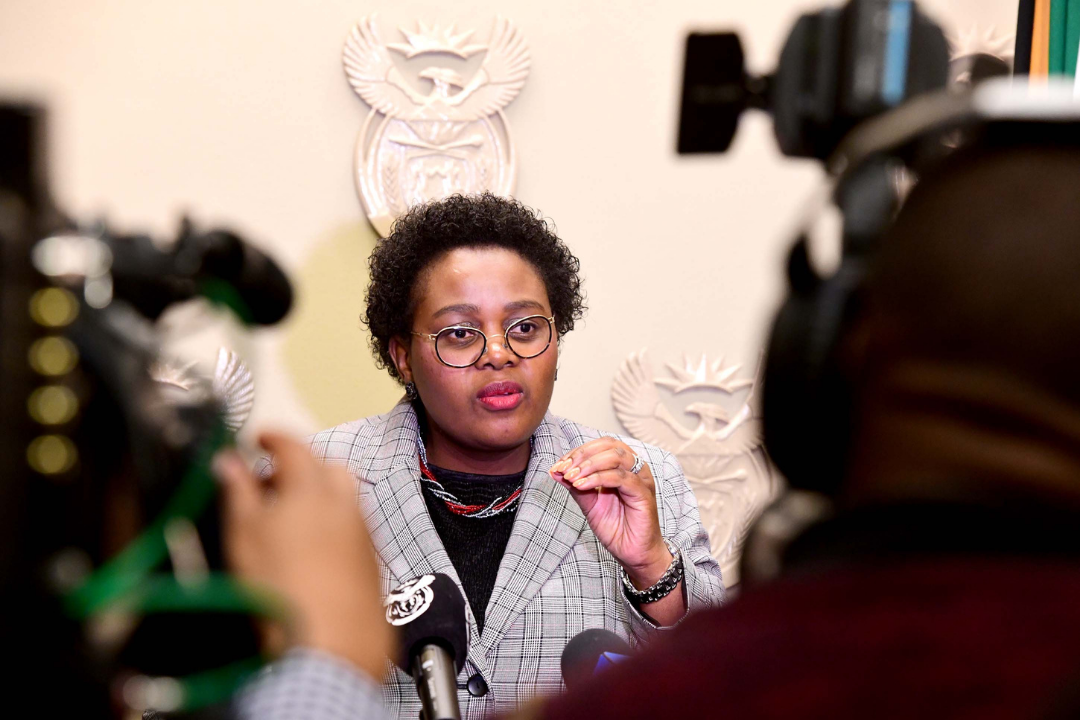

13/06/2022 | By Busiswe Mavuso
We have responded well to some of the recent crises we have faced as a country. In response to numerous challenges – Covid-19 perhaps above them all – we have pulled together, particularly government and business.
The Solidarity Fund brought together people from public and private sectors, government and business, to rapidly raise funds to fight Covid and deploy them most effectively. Business, through a rapidly assembled voluntary forum, Business for South Africa, mobilised resources from the private sector and worked extensively with the Department of Health to support the vaccine rollout and much else. This worked because of the positive response and willingness to partner from government – it was a true partnership that brought the parties’ respective skills and resources together to ensure the most effective actions could be taken to confront the crisis.
The challenge, however, is to ensure all collaborators have sufficient capacity to engage and plan for such joint action. In the case of the KwaZulu-Natal floods, this is proving problematic.
Particularly at local government level, there is often a lack of capacity to assess the impact of a disaster and then to determine what assistance is needed. That is both the assistance that business can offer, but also that central government can offer.
The unspent R1bn emergency disaster relief fund that National Treasury put aside following the floods is a case in point. They remain unspent because Treasury has not received applications with the correct documentation from the provincial and municipal structures that need to spend the money. This reflects the capacity problem – local government structures are unable to assess the damage or plan for recovery.
Business similarly can work to rally resources and look to partner with government and civil society structures where they are needed. Increasingly, however, the challenge is to assess just what is needed. Through its operations and staff, business is on the ground and can directly assess damage and understand what interventions can be useful, but this is always limited to the areas in which businesses operate. Increasingly, resource support is needed for the first step, a comprehensive assessment of the damage and then a plan for repair and recovery that can be rapidly implemented.
In the KwaZulu-Natal floods example, estimates of the damage have differed dramatically, from R1bn to R50bn. Such a range indicates that an agreed assessment of the damage does not yet exist, nor does the plan to repair the damage. We should be aiming not just to repair the damage caused by the floods but to improve resilience to climate change to be able to handle more frequent extreme weather. There remains both immediate relief needed, with thousands still being accommodated in temporary structures, and then a longer-term plan.
There is now a concerted effort to build momentum to collaborate to bring relief and rebuild. We are determining how business can effectively support this. As is always the case, every disaster is unique and we learn new ways of engaging as we go. What doesn’t change, however, is the consistent willingness of organised business, and the many other businesses that often collaborate to tackle specific problems, to work with partners.

South Africa is facing a grey listing by the international money laundering watchdog, the Financial Action Task Force, unless it meets stipulated requirements by October. I write in Fin24 that being placed on the grey list means businesses as well as NGOs will have extra requirements to clarify sources of funding. South Africa’s reputation will also be battered as we’d be known as a money laundering destination and, given our reputation for corruption, that will drive investors to look elsewhere. South Africa’s distressed economy cannot afford any extra burdens on businesses and further investment deterrents.

The National Development Plan: Vision for 2030 is a brilliant policy document. It is credible because it is a purely evidence-based policy, free of any ideological influence. I write in Business Day that the failure to meet targets means we shouldn’t scrap it but the National Planning Commission needs to go back to each part of the plan and set new, realistic targets.
This is a weekly newsletter from BLSA CEO Busi Mavuso.
BLSA is a business organisation that believes in South Africa’s future and shares the values set out in the Constitution. In 2017, BLSA signed a contract with South Africa, committing business to playing its part in creating a South Africa of increasing prosperity for all by harnessing the resources and capabilities of business in partnership with government and civil society to deliver economic growth, transformation and inclusion.
06/02/2025
Government recognises the important role that municipalities have in reforming our energy and water sectors in particular, says BLSA CEO … continue reading
16/01/2025
Pretoria, 16 January 2025 – President Cyril Ramaphosa has today, 16 January 2025, convened with ministers and senior business leaders… continue reading
30/10/2024
BLSA commends Finance Minister Enoch Godongwana on a solid budget delivered with strained resources, striking a good balance between fiscal… continue reading
27/09/2024
It has been good to hear a change of tack from the Department of Trade, Industry and Competition, with the… continue reading
13/09/2024
It is with great sadness that Business Leadership South Africa (BLSA) learned of the passing of former minister and political… continue reading
04/09/2024
While Women’s Month is behind us, we continue celebrating the phenomenal women at the helm of some of BLSA’s member… continue reading
30/08/2024
Although Women’s Month is almost over, there is always good reason to celebrate the exceptional women leaders who are associated… continue reading
28/08/2024
Although Women’s Month is almost over, there is always good reason to celebrate the exceptional women leaders who are associated… continue reading
22/08/2024
Although Women’s Month is almost over, there is always good reason to celebrate the exceptional women leaders who are associated… continue reading
29/02/2024
Johannesburg 29 February 2024 – Business Leadership South Africa (BLSA) welcomes the appointment of a permanent executive team at Transnet… continue reading
21/02/2024
Finance minister Enoch Godongwane delivered a strong budget that commits government to appropriate spending levels given the weak economic outlook. … continue reading
05/02/2024
BACSA confirmed as the primary point of contact for Business interaction with government on crime and corruption through government structures,… continue reading
13/08/2025
Johannesburg, 14 August 2025 — Business Leadership South Africa (BLSA) has unveiled the BLSA Reform Tracker, an innovative online platform… continue reading
